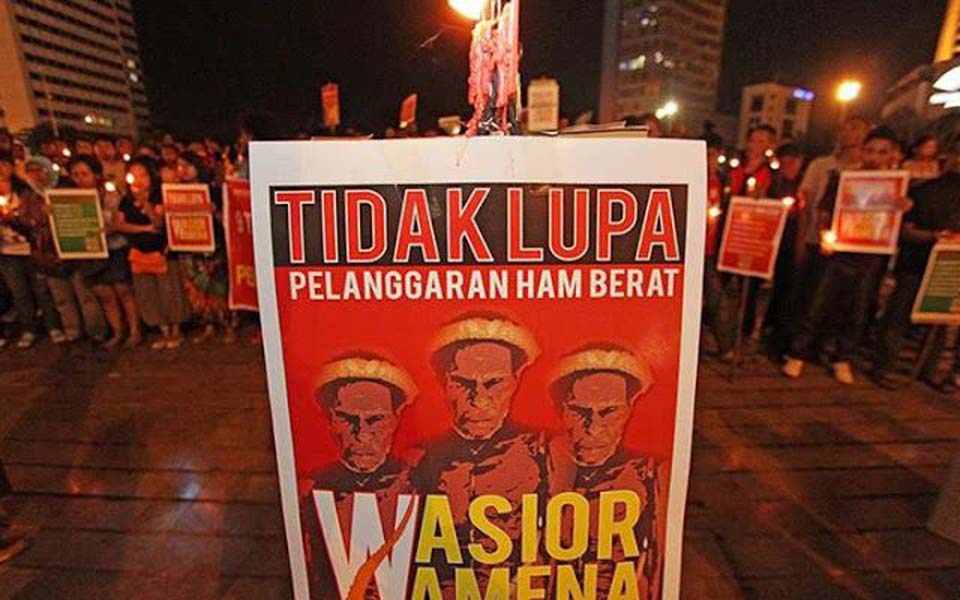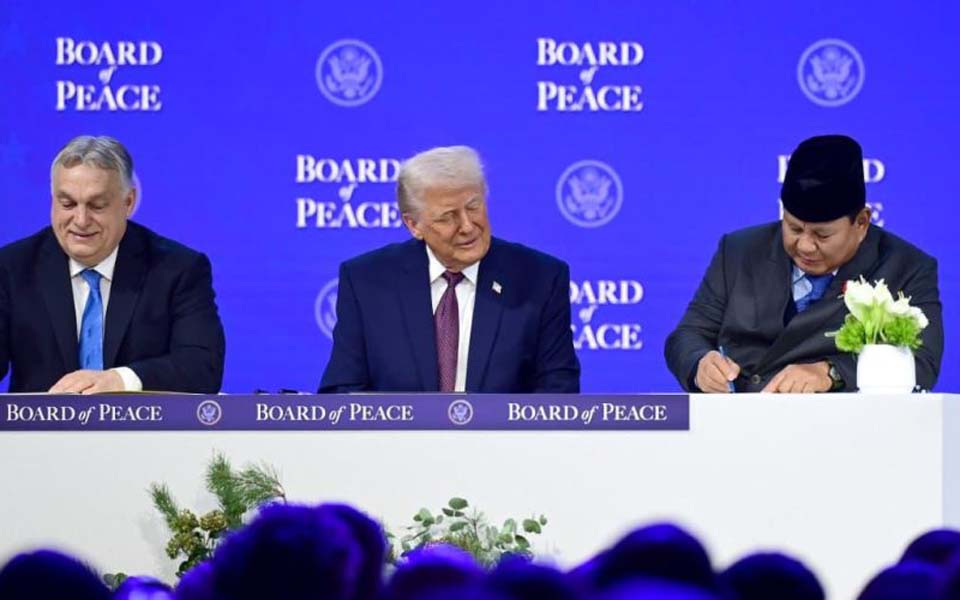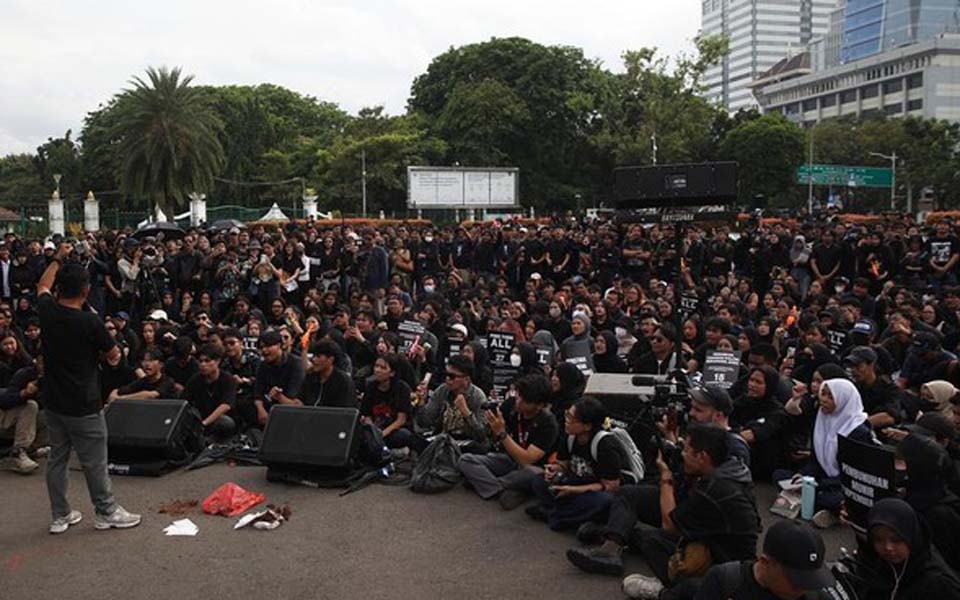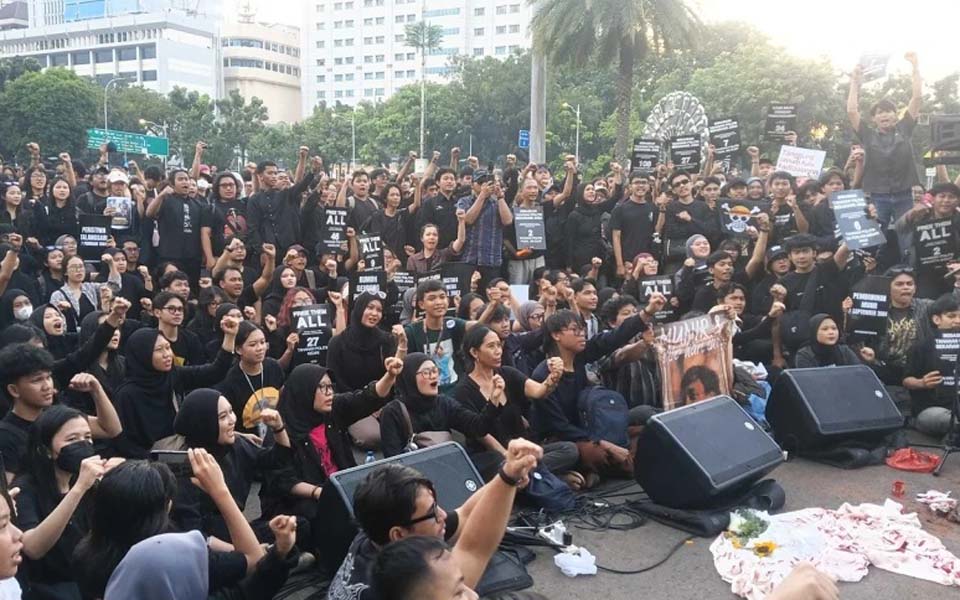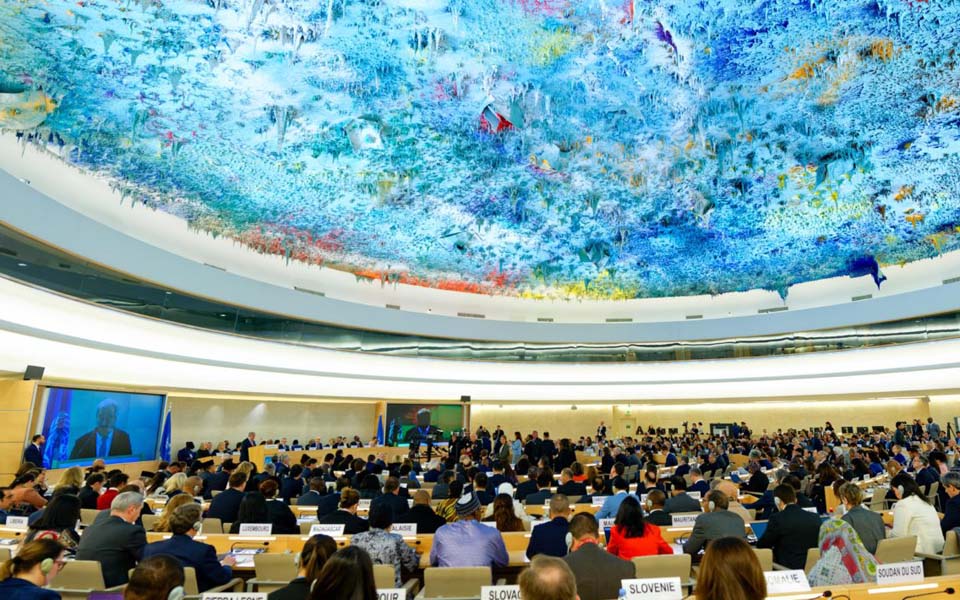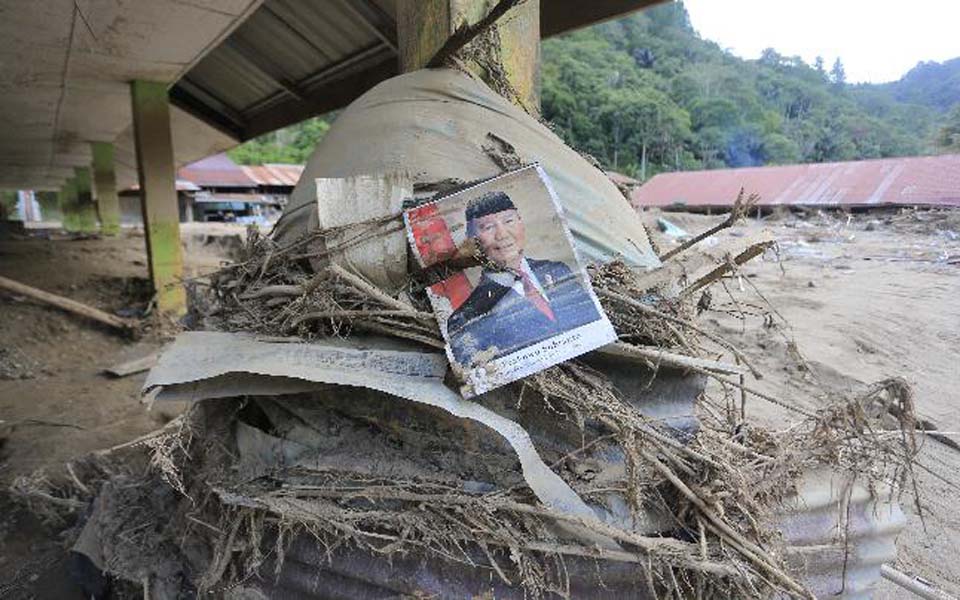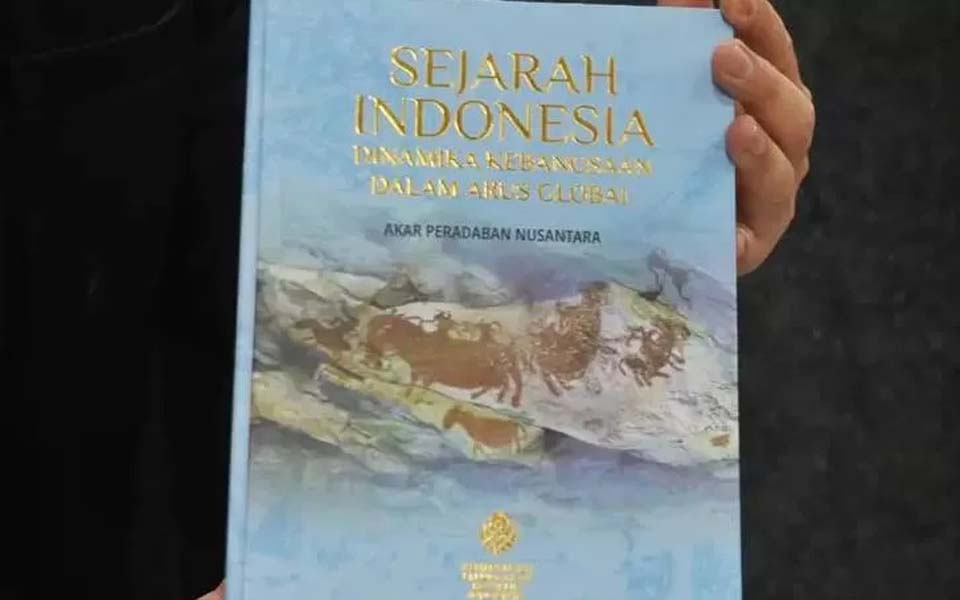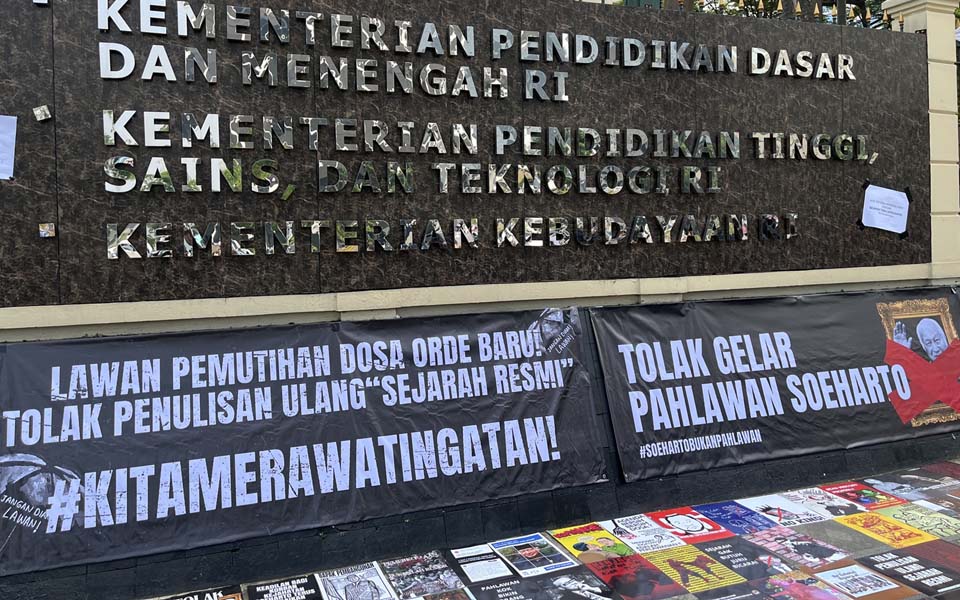In the midst of abundant natural resources and enchanting cultural diversity, the situation in Papua is not as good and beautiful as the natural beauty it has. In recent times, news reports about Papua have grabbed quite a lot of public attention.
The reason being that one of the areas that is been known for its natural beauty and marine biodiversity, namely Raja Ampat, is threatened with damage from reckless mining activities. As a result, the public has expressed serious concerns about the environmental, social and economic impacts that could arise because of these mining activities.
Furthermore, the problems occurring in the land of Papua are not only over environmental and social issues, but also over issues of law enforcement and human rights. Various criminal offenses often occur ranging from human rights violations such as acts of violence, torture, arbitrary arrests, to murder outside the legal process (extrajudicial killings). Unfortunately however, up until now law enforcement to address these incidents and accountability has been very minimal so it has created circle of impunity that is difficult to correct.
One of the events that has to this day never been fully resolved is the Wasior Tragedy that occurred on June 13, 2001. The event occurred due to a denial of agreement (default) regarding customary rights committed by the timber company CV. Vatika Papuana Perkasa (CV VPP) against indigenous peoples in the area of Wondiboi Village in Wasior district. As a result of the default, the community protested and carried out an attack on the company that resulted in the death of five members of the National Police's paramilitary Mobile Brigade (Brimob) and one CV VPP employee.
Following the incident, Brimob began to conduct sweeps and purse those suspected of being involved in the attack. During the operation, security forces entered the villages and took repressive actions. A number of civilians, who were mostly not involved in the attack on the post, were forcibly arrested. During their arrest and detention, they allegedly suffered torture, persecution and other inhuman treatment.(1)
In 2003 National Human Rights Commission (Komnas HAM) conducted an in-depth pro-judicial; investigation of the Wasior Tragedy. Based on the results of the investigation, it was found that as a result of this operation four people died, 39 people suffered torture, one person experienced sexual violence and four others were forcibly disappeared. Residents' houses were also reported to have been damaged and torched by security forces.
The conclusion from the pro-judicial investigation stated that this tragedy was a gross human rights violation that occurred systematically and was widespread. Furthermore, Komnas HAM also said that the violations were carried out by the Manokwari municipal police and several police officers from the sub-district adjacent to Wasior.
Up until now however, the state has not taken responsibility for its actions by fully investigating and trying the case in court. The Attorney General has deemed that the results of the pro-judicial investigation conducted by Komnas HAM do meet the formal and material requirements to be upgraded to the criminal investigation stage as a gross human rights violation.
This shows that there are still serious problems in the process of upholding human rights in this country where there is a gap or a lack of understanding about human rights among law enforcement and judicial officials which is one of the causes of the difficulty of resolving cases of gross human rights violations. This seems to depict that although the state has an adequate legal framework to protect and respect human rights through Law Number 39/1999, Law Number 26/2000 and the ratification of several international agreements related to human rights, this is still has not a guarantee that human rights will be upheld if it is not followed by the implementation of law enforcement in the field. In the end, these rules are only used as formality without any commitment to carry out these obligations.
The reluctance of the state to uphold human rights, especially in Papua, is felt to be very real and clear. This can be proven by the failure to carry out the instructions contained under Article 45 of Law Number 21/2001 on Special Autonomy (Otsus) for the Province of Papua which has been revised into Law Number 2/2021, which in the terms of the obligations to uphold, advance, protect and respect human rights in Papua, the government must form a Komnas HAM representative office, a Human Rights Court and a Truth and Reconciliation Commission (KKR) for the sake of enforcement and protection of human rights in Papua. But the fact is that up until now, not one of these obligations has been fulfilled or implemented by the government.
Furthermore, in the international context, the Indonesian government's commitment to resolving gross human rights violations in Papua, which was conveyed at the 2017 UN Universal Periodic Review (UPR) Session, has not shown significant progress. This fact confirms the discrepancy between promises made in international forums and the implementation in the field. Instead of resolving gross human rights violations through judicial mechanisms, the government has taken a shortcut through non-judicial mechanisms by forming the team for the Non-Judicial Resolution of Past Gross Human Rights Violations (PPHAM) through Presidential Decree Number 17/2022. Moreover, there is a discourse from the government about continuing the PPHAM program.(2)
Of course, since this program was initiated by the government, there has been a massive wave of opposition from civil society, the victims and also the families of the victims. For the victims, they believe that true justice can only be achieved through judicial channels, namely by punishing the perpetrators. While through non-judicial mechanisms, settlements are considered not to use the principle of accountability and do not necessarily include official recognition by the state of the gross human rights violations that occurred. While recognition of these events is also important as part of restoring dignity and preventing a recurrence of events.
In addition to this, pursuing accountability for the perpetrators is also very important in order to break the chain of impunity that has so far shackled law enforcement bodies in Indonesia. Without applying the law against perpetrators, this will of course set a bad precedent and a guarantee of a repeat of such incidents in the future. Because until now, due to the incompetence of the state in providing ideal punishments, incidents of legal violations and even human rights violations in Papua continue to occur.
Based on the results of monitoring by the Commission for Missing Persons and Victims of Violence (Kontras), just between mid-2023 and 2024 there have been 103 incidents of violence resulting in 104 injuries and 65 deaths. These incidents could continue to occur if the government does not take any steps to change the problems in Papua. As is widely known, so far the government has implemented a security approach to the situation there. So that TNI/Polri (Indonesian Military/Indonesian Police) officers are deployed on a massive scale. Kontras has recorded that that from January 2024 to April 2025 alone there were around 5,987 TNI/Polri officers sent to Papua with a breakdown of 5,487 TNI soldiers and 500 Polri members.
We are of the view that the deployment of TNI/Polri personnel to Papua is an illegal action and has no legal basis. Since 1998, Papua has not had the status of a military operations area (DOM), so it is inappropriate to deploy TNI/Polri personnel. Even if there is a deployment, the deployment must be carried out accountably through a state political decision. Even though the deployment of TNI personnel is in the context of Operations Other Then War (OMSP) following the recent revisions to the TNI Law, this task can only be carried out if the government has issued a government or presidential regulation as stipulated under Article 7 paragraph (4) of Law Number 3/2025.
Thus, it can be said that the Wasior tragedy is one piece of evidence that of the state's failure to protect the rights of its citizens, especially in Papua, and is real evidence of the ongoing practice of impunity that has been eating away at the Indonesian nation.
Based on the explanation above and in conjunction with the 24th anniversary of the Wasior tragedy, we urge:
First, the Government of the Republic of Indonesia to carry out its obligations by fulfilling, respecting and protecting human rights, especially those of the people of Papua;
Second, that the Attorney General be ordered to form an ad hoc investigation team as a follow-up to the investigation into the Wasior incident and various other gross human rights violations that have been reported by the Komnas HAM in accordance with the mandate of Article 21 paragraph (3) of Law Number 26/2000 on Human Rights Courts;
Third, the central government to immediately establish a Human Rights Court in Papua as mandated under Article 45 of Law Number 21/2001 on Special Autonomy for Papua Province which was later revised into Law Number 2/2021;
Fourth, the government conduct a comprehensive evaluation of the security policies/approaches that have been implemented in Papua and immediately withdraw the troops that have already been deployed.
Jakarta, June 14, 2025
Contact person
Dimas Bagus Arya, +6289651581587
1. Full report of the Human Rights Problems Study Team in Papua, Komnas HAM, October 2023, p. 70
2. See, the Government is Committed to Continuing the PPHAM Program, SKP-HAM Central Sulawesi, https://www.skp-ham.org/pemerintah-berkomitmen-meneruskan-program-ppham/.
Commission for Missing Persons and Victims of Violence (Kontras)
[Translated by James Balowski. The original title of the article was "Rilis Pers Dua Dekade Lebih Wasior Menahan Luka, Impunitas terus Berlanjut, Negara Membisu dan Enggan Bertanggung Jawab!".]





